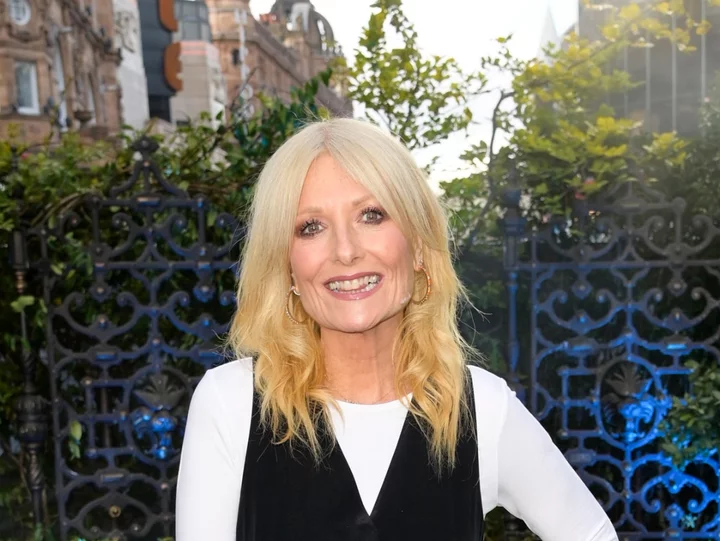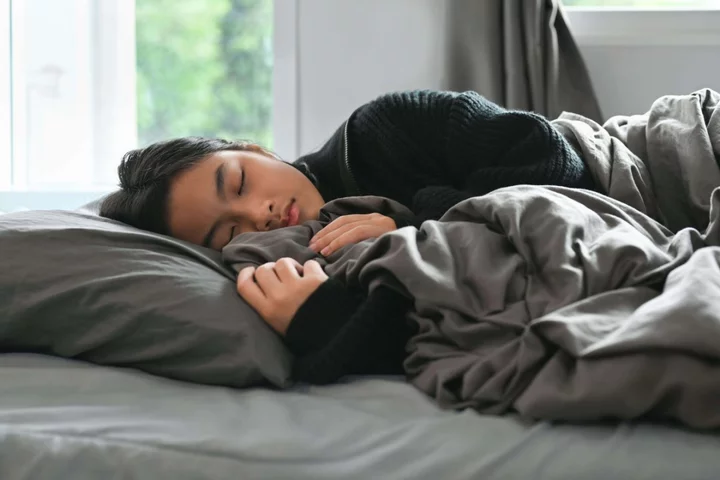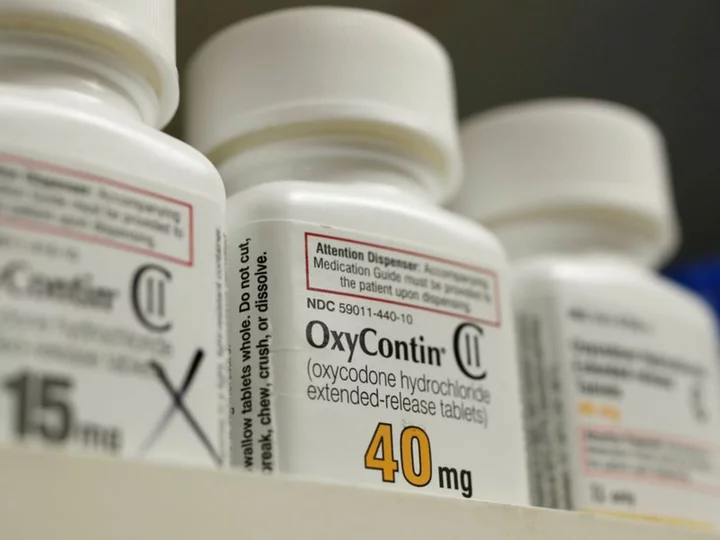
Summer of female sporting events inspires millions of women to get back into the game
A bumper summer of female sporting events has inspired millions of women to get back into sports after years of fear and judgement. Encouraged by competitions such as the FIFA Women’s World Cup, the Women’s Ashes and Wimbledon, 59 per cent of women have started training with an old sports team again. A poll of 2,000 females aged 18-65 found 46 per cent feel motivated to try sport after seeing the empowerment and determination showed by these professional female sporting stars. It also emerged 31 per cent of women over 45 played sports when they were younger but dropped out as a teenager, with being ‘too sweaty’ and not feeling ‘good enough’ to take part among the top reasons. But now, many are dusting off their boots, digging out their racquets and getting back to action. Sure UK, a supporter of women’s sports, commissioned the research after launching the Breaking Limits: Girls Can Football Series, which aims to provide funding and training to give young people access to sport coaches, communities and safe spaces. Former Lionesses goalkeeper Carly Telford, who is partnering on the campaign, said: “Too many women have missed out on years of enjoyment, fitness and socialising due to feeling unable to continue with team sports and it’s about time they feel inspired to get back into the sports they enjoy without fear. “There’s still a long way to go and so much more that we need to do to promote women’s sport in all corners of the world. “To normalise women succeeding on pitches, courts and fields should be everyone’s goal, and both consumers and organisations have roles to play to make this a reality.” The study found there is more to do though, with 77 per cent of women believing that society needs to promote female sporting role models. While 36 per cent worried about being treated differently to men if they were to participate in sports, leaving 64 per cent put off trying sports altogether as a result. But putting worries aside, the future of women in sport looks bright, with the most popular sports they’d like to be involved in named as football (37 per cent), netball (21 per cent) and athletics (15 per cent). A quarter voted netball as the most inclusive sport for women, followed by athletics (15 per cent), and football (15 per cent). And half believe women’s football will eventually be as popular as men’s football – if not more. For 74 per cent, playing as part of a team has worked wonders for their mental health, while 51 per cent said sports has had a positive influence on their life overall. As 46 per cent of those polled, via OnePoll, feel motivated to try a sport after seeing the empowerment and determination showed by the sporting stars. ‘Movement has the power to transform lives’ Alice Duffill, from Sure UK&I, said: “Movement has the power to transform lives. “Everyone should be able to experience all the incredible physical, mental and social benefits movement bring - whoever you are, however you move. “But in our increasingly unequal societies, social, economic, and physical barriers stand in the way. “Inspiring women and girls to play sport through promoting and raising awareness professional athletes who look like them is key in breaking down some of those barriers. “That’s why we’re committed to growing women’s sports as we know the importance of shining a light on professional women athletes to help inspire today’s and tomorrow’s girls”. Read More Study links ultra-processed food and drink to risk of depression in women Study finds women only give themselves 30 minutes of self-care a week Women respond to viral TikTok prompt asking about ‘female version’ of male Roman Empire obsession The cure for smelly garlic breath? Turns out, it’s simpler than you think Teenager’s death after drinking too much water was ‘preventable’ Could bats hold the secret to beating Covid and cancer?
2023-09-27 20:25

Rita Ora and James Arthur set for Hits Live Manchester 2023
Hits Live is returning to Manchester and Birmingham with stacked line-ups.
2023-09-27 18:23

Gaby Roslin says she’ll ‘never apologise’ for saying she’s happy post-divorce
TV presenter Gaby Roslin has said she will “never apologise” for telling people she’s happy, after she experienced moments of grief following her divorce. The former The Big Breakfast presenter and author, 59, was married to musician Colin Peel for almost a decade. They share a daughter together. “Not all my life has been joyful. My mum died young. I’ve been through divorce and lost some of my dearest friends,” she told Prima magazine. “You go through those things and you realise that life is precious and, without sounding trite, I will never apologise for saying I’m happy.” Roslin’s mother died just over 20 years ago, around the time she was beginning a new job. The TV star said that it feels like she and her husband of 18 years, David Osman, “fit together”. She shares another daughter with Osman. “We still really appreciate what we have,” Roslin, who presents a show on BBC Radio London along with sints on BBC Radio 2’s The Zoe Ball Breakfast Show and BBC One’s Morning Live, said. “The things that makes it work is that we’re not in competition with each other: We’re very, very different.” Speaking about how “life is crappy for a lot of people”, she added: “I’m someone who has always been very positive and full of laughter, but I’m aware that it’s not something everyone can hold on to. “There are coping mechanisms that have helped me, and I know they can help others, too.” Roslin revealed that some of her personal coping mechanisms have included giving up alcohol five years ago, and going for walks. “There’s a lot of ageism out there,” she said. “It’s no secret in my industry, but it’s everywhere. You can’t do this or that if you’re a certain age. No! I’m lucky that I’ve carried on working, but I have friends who have experienced it. “I know an actor who, at 55, was going for the part of someone older than her and was told that she was too old. They cast a 40-year-old. That’s so wrong.” Roslin is preparing to release her new guided journal, Spread The Joy: Simple Practical Ways To Make Your Everyday Life Brighter, which focuses on stories, illustrations, anecdotes and tips and tricks. The full interview is available now in Prima’s November issue in supermarkets and online at Mags Direct. Additional reporting by Press Association. Read More Sophie Turner and Joe Jonas reach agreement after child custody row Who is Laura Gallacher, Russell Brand’s wife of six years? Everything we know about Katy Perry and Russell Brand’s short-lived marriage Why is my teenager sleeping so much? Sounds that can help you fall asleep better Holidays to the homeland could help children hold onto family’s original language
2023-09-27 18:16

Why is my teenager sleeping so much?
When you think about it, teenagers are a lot like pandas. Like the black and white bears, teens often have a tendency to lounge around for hours, munch their way through massive amounts of grub, and snooze for extremely long stretches. It’s not unusual for youngsters to emerge zombie-like from their bedrooms hours after parents and little ones have arisen on weekend mornings, or have a ‘disco nap’ in the afternoon. But how can you tell if your child’s sleeping habits or typical for a teen – or a cause for concern? How much do teens need? “Sleep research suggests that a teenager needs between eight and 10 hours of sleep every night, so slightly more than an adult or younger child requires,” says Dr Hana Patel, sleep expert at Time4Sleep. “This is because teenagers need additional sleep to support their rapid physical, intellectual, and emotional development.” Chris Tattersall, sleep expert and MD of Woolroom explains: “They are going through a second developmental stage of cognitive maturation. Additional sleep supports their developing brain, as well as physical growth spurts.” However, it’s estimated that most adolescents in the digital age only get about 6.5 to 7.5 hours sleep. Tattersall says: “With the increased use of social media scrolling before bedtime, this is affecting thousands of teenagers’ sleep because the blue light from screens suppresses melatonin levels and delays sleepiness.” What happens if they don’t get enough sleep? “Teenagers not getting enough sleep can lead to all sorts of potential issues,” says Tattersall. Psychological symptoms may include, he warns: “Depression, difficulty concentrating, memory loss, anxiety and low self-esteem.” Plus, there’s the risk of weight gain due to eating more sugary foods to combat tiredness. “Not only does it have negative effects on their general wellbeing but it can also affect their academic performance,” Patel adds. Is it possible to sleep too much? It may seem counterintuitive, but sleeping too much can actually make young people more tired. “Anything over eight to 10 hours of sleep for teens could be considered excessive and may cause daytime sleepiness,” says Patel. “This can negatively affect interpersonal relationships, extracurricular activities, general health and, for older teens, driving too.” It’s important for parents to watch for signs that teens are struggling with sleep. “Look out for concentration difficulties, shortened attention span, memory impairment and lack of enthusiasm or energy,” Tattersall says. “You also might notice moodiness and aggression, poor decision-making, and signs of depression.” Patel says: “Sometimes teens may also complain of symptoms like headaches and migraines.” Try to encourage good ‘sleep hygiene’ in terms of a youngster’s evening routine, meaning avoiding large meals and caffeine before bed and creating a relaxing bedroom environment. “If possible, reduce the use of devices like smartphones and tablets, TVs or computers in the bedroom at night, as the light from the screens interfere with sleep,” Patel says. “If you are concerned about your teenager’s sleeping habits and the effects of this on their health, consult with your GP.” Read More Charity boss speaks out over ‘traumatic’ encounter with royal aide Ukraine war’s heaviest fight rages in east - follow live Kate gives a lesson in autumnal power dressing in a green trouser suit How can I boost my soil when I go peat-free? See Cate Blanchett champion sustainable fashion at glamorous Giorgio Armani show
2023-09-27 16:26

Bambi screenwriter thinks Disney remake needs to be more kid-friendly
'Bambi' screenwriter Lindsey Anderson Beer - who has since stepped away from the project - thinks the remake needs to be more kid-friendly.
2023-09-27 15:25

'If enough people watched it on Hulu and everyone's begging for it, we'll talk': Kaitlyn Dever horror No One Will Save You sequel not ruled out
'No One Will Save You' director Brian Duffield has admitted it would take a lot of hype for him to consider a sequel.
2023-09-27 15:24

Consulting firm McKinsey to pay $230 million in latest US opioid settlements
By Nate Raymond (Reuters) -Consulting firm McKinsey & Co has agreed to pay $230 million to resolve lawsuits by hundreds
2023-09-27 09:51

US judge overturns Eli Lilly's $176.5 million loss in Teva patent case
By Blake Brittain Drugmaker Eli Lilly convinced a federal judge in Massachusetts on Tuesday to overturn a $176.5
2023-09-27 05:24

5 signs of frontotemporal dementia: Bruce Willis’s condition explained
Emma Heming Willis, actor Bruce Willis’ wife, provided an update on her husband’s health in a new interview with the Today show. She said being a celebrity does not change the reality of living with a disease like frontotemporal dementia. “You know what I’m learning is that dementia is hard. It’s hard on the person diagnosed, it’s also hard on the family,” she explained. “And that is no different for Bruce or myself or our girls. When they say this is a family disease, it really is.” Willis’ family first announced his diagnosis of frontotemporal dementia in March. At the time, they wrote they had the “deepest gratitude for the incredible outpouring of love” following the initial news. Here we take a closer look at the condition, known as FTD. – What is FTD? FTD refers to a group of illnesses that primarily affect the frontal and temporal lobes of the brain, which are associated with behaviour, personality, and language, per the Mayo Clinic. It’s often misdiagnosed as Alzheimer’s disease or a psychiatric problem, and it often begins between age 40 and 65. FTD accounts for between 10 and 20 per cent of all dementia cases. – What causes FTD? It’s not clear what causes FTD. Certain genetic mutations have been linked to the condition, but many people who develop FTD do not have a family history of the illness. The NHS says that, like other forms of dementia, FTD tends to develop slowly and get gradually worse over the years. – What are the symptoms of FTD? There are two types of FTD – behavioural variant FTD (bvFTD) and primary progressive aphasia (PPA). BvFTD, which results from damage to the frontal lobes of the brain, mainly causes problems with behaviour and personality. PPA, when damage occurs to the temporal lobes on either side of the head nearest the ears, causes language problems. Alzheimer’s UK says that FTD symptoms are “very different” to other more common types of dementia, such as day-to-day memory loss – adding that in the early stages of the disease, many people can still remember recent events. The symptoms can be distressing to family members, as they include lack of judgment, inappropriate social behaviour, decline in personal hygiene, compulsively putting things in one’s mouth, and eating inedible objects. People may also show a lack of interest in their activities, which is sometimes mistaken for depression, and they may exhibit a lack of empathy. – How is FTD treated? According to Dementia UK, there is no prevention or cure for FTD and it is often best to “focus on practical strategies to help the person live as well as possible with the diagnosis”. Willis’ family said that the lack of treatment for the disease was “a reality that we hope can change in the years ahead” with further research. They added that they hope media attention will be used to raise more awareness of FTD. “Bruce always believed in using his voice in the world to help others, and to raise awareness about important issues both publicly and privately,” they said. “We know in our hearts that – if he could today – he would want to respond by bringing global attention and a connectedness with those who are also dealing with this debilitating disease and how it impacts so many individuals and their families. “Bruce has always found joy in life – and has helped everyone he knows to do the same.” Read More Charity boss speaks out over ‘traumatic’ encounter with royal aide Ukraine war’s heaviest fight rages in east - follow live Kate gives a lesson in autumnal power dressing in a green trouser suit How can I boost my soil when I go peat-free? See Cate Blanchett champion sustainable fashion at glamorous Giorgio Armani show
2023-09-27 02:16

Black Grape announce new album and UK tour
Shaun Ryder's band Black Grape has announced the new album 'Orange Head' and concert dates in the UK later this year.
2023-09-26 23:15

Kourtney Kardashian announces imminent arrival of her new collection with Boohoo
Kourtney Kardashian has a second line coming to Boohoo later this week.
2023-09-26 22:25

H and M becomes latest retailer to charge shoppers returning items bought online
After its rival retailers including Zara, Boohoo, Uniqlo and Next did the same, H and M has become the latest retailer to charge shoppers who return items bought online.
2023-09-26 20:57
